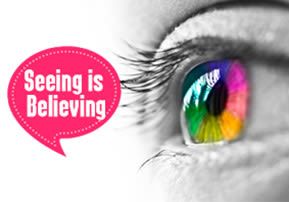
Seeing is Believing
If we only open our eyes, we see a whole world that overflows with Godliness and such beauty that no human designer could ever conjure, much less create...

The human eye is truly inspiring.
I knew it was time to see a doctor myself when one of the patients in my waiting room grinned and told me, “You must be using drugs too if your eyes are that red.” My eyes had been bothering me for a few days but now they were bloodshot and oozing all sorts of gross stuff. Luckily the ophthalmologist who worked on the 2nd floor of my hospital was kind enough to fit me in later that afternoon for a visit.
With a few hours to waste in my office before my appointment, I took some time for personal prayer to think about how wonderful it was to be able to have zero complaints about my eyes as recently as the week before. But here I was, wiping crusty puss out of my eyes every other minute and hoping I wasn’t going to hear the news that I was going blind. The famous writer Aldous Huxley once said, “Most human beings have an almost infinite capacity for taking things for granted.” Certainly this rings true for bare necessities like one’s eyesight. But try eating breakfast, finding a pair of matching socks, or driving to work with your eyes closed. Perhaps this is why our Sages instituted the following prayer for us to say each morning: “Blessed are you for giving sight to the blind,” (Talmud Berachot 60B). With this blessing—based on Psalms 146:8—we are each given an opportunity to be grateful for our vision on a daily basis. Otherwise we would be forced to continue taking our eyesight for granted and never appreciate how good 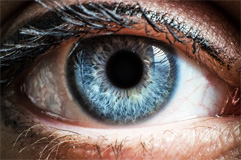 we have it until the system breaks down.
we have it until the system breaks down.
As a relatively healthy guy with a job and a family, I can’t say I’d spent too much time thinking about my eyeballs over the past 33 years. Inspired to ponder my own anatomy, I pulled my old medical textbooks off of the shelf and rediscovered how amazing the human eye is. Built to perfection, the eye has a luminescence range (the ability to detect subtle differences in light contrast) of factors that measure close to one in a hundred trillion. This is facilitated by all sorts of cool parts including nearly 130 million individual photoreceptors (light-sensing cells), six unique muscles, and an unforgettably-named fiber called the Zonule of Zinn.
Rabbi Avigdor Miller of blessed memory used to teach that bananas were clear evidence of how much God loves each and every one of us. Not only are they a healthy snack, but they taste delicious, fit easily into our hands, change color to indicate when they’re ripe for eating, and are conveniently packaged in portions which are easily transported. If a person can become close to God by thinking about fruit, the human eye—which blows bananas out of the water in terms of its complexity—should be enough to turn a regular guy into a serious Chassid!
By the time I got to the ophthalmologist’s office a few hours later, I was all smiles and couldn’t help myself from telling the front desk administrator, “today is the best day of my life.” Following a successful visit with Dr. D., I am tremendously grateful to report that things have improved mightily with a few eye drops each day. How the medications work or what caused the irritation in the first place couldn’t be less important to me.
So perhaps this whole thing has just been for the sake of learning to appreciate my vision and seeing it as a lesson for life in general. Certainly our mystical tradition had this in mind when describing the aforementioned daily blessing as “a thank-you to God for the tremendous kindness of opening our eyes to the beauty of spirituality,” (see the 19th Century works of the famed Kabbalistic master The Ben Ish Chai). If a person looks closely, they can find God in all sorts of things beyond the bananas on our kitchen countertop. Godliness is in the people that surround us and we must be grateful for the loving relationships that we’ve been given. For our parents who clothed, fed, and raised us. For our spouses who support us in every possible way. For our children who provide us with endless joy and constant opportunities to give. For our friends who always provide a listening ear and a shoulder to lean on. For everyone including the mailman who makes sure that the bills come on time, we can always be grateful for everything we’ve been blessed with. All we have to do is to keep our hearts—and eyes—open.
* * *
Jacob L. Freedman, MD, is a board-certified psychiatrist and Professor, and a business consultant based in Jerusalem, Israel. His new book, Off The Couch, is available from Menucha Publishers. Dr. Freedman can be most easily reached via his website: drjacoblfreedman.com or his email: JacobLFreedman@gmail.com.


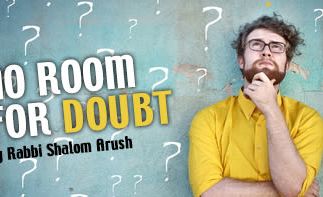

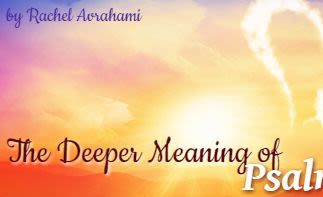
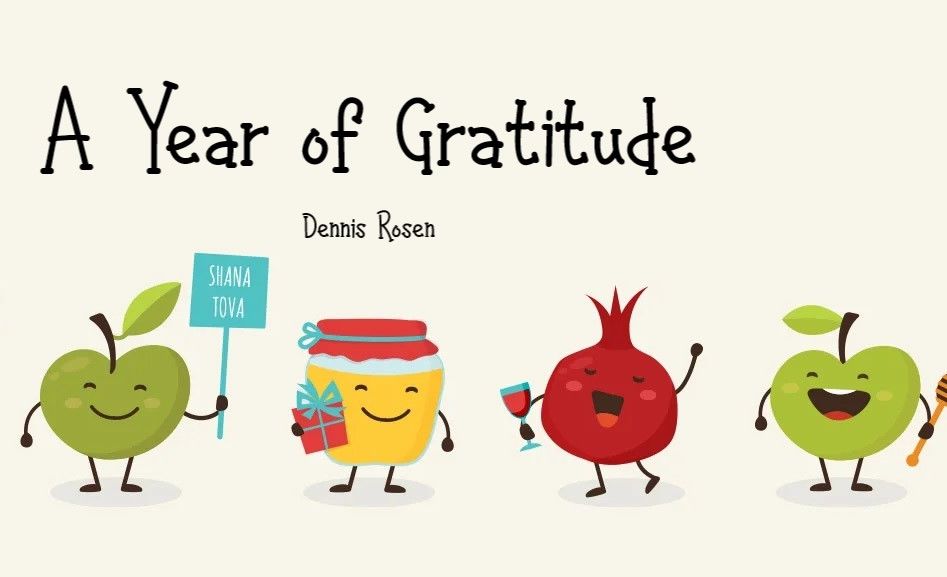





Tell us what you think!
Thank you for your comment!
It will be published after approval by the Editor.